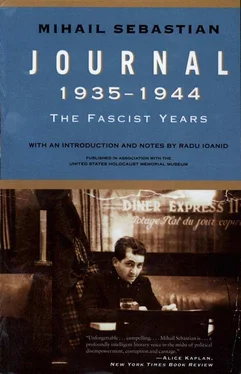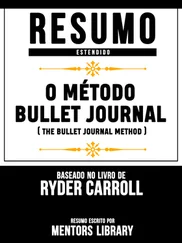All this takes a form that is comically sentimental, schoolboyish, adolescent. It sickens me to think that she is meanwhile occupied with a load of trivia that amuse or excite her, in her little life of pleasures, walks, and frivolities. It is altogether likely that she is sleeping around — and I am stupid enough to talk to her gravely and with a ridiculous lack of skill about various overcomplicated “problems.”
She, who expected just another man, seems weary of my hesitations, of my excessive complications. And I suffer like a child because of all these meaningless trifles.
She is a “good girl.” Will I one day be able to receive her in my bachelor flat, fuck her, drink a glass of wine and smoke a cigarette with her, put a record on the gramophone, and listen with indifference — or at best with amusement — as she talks about her past lovers? If I can, everything will be perfect. That too is a kind of happiness, and I would certainly be happy. But what if I can’t? Another failure and it’s all over.
Anyway, things are very bad as they stand. It is sickeningly trite that today I bought her a copy of Barbellion’s 9Journal — for her about whom Berariu said to me two months ago: “Go chat her up — you can’t go wrong — she’ll screw with anyone.”
And he was probably right.
I’m seeing her tomorrow. She leaves on Sunday.
I broke with Jeni appallingly. The poor girl!
She was supposed to call me and she didn’t. Everything can end at that, in the simplest way. Any move on my part would be more than ridiculous, worse than imprudent.
I ought to understand — and do understand perfectly — that it would be out of all proportion to note- here every sordid little thing that has happened to me in this “love story.” Enough!
Four hours later
More stupid than any lovesick fool, for I have absolutely no excuse.
I went to see her after all (after phoning twice: the first time she was asleep, the second time on her way out shopping). I told her — and I did it quite well, with perfect gestures, frown, and voice — that I am in love with her. Then I left, because someone was due to call on her at a quarter past eight.
“I got the times mixed up,” she said candidly.
What an ass I am!
Chance has it that I am just now rereading a volume of Proust — the second one of Albertine disparue.
So many things should make me skeptical about my amatory “sufferings.” I am well aware that they will not last, that I shall forget them, that they are all derisory, and that one day they will mean so little as not even to appear ridiculous. Yet such words of wisdom, such calculations that I know to be objectively correct, do not lessen in the slightest today’s depression, the absurd need to see her, the physical pain of constantly thinking about her, of seeing again certain moments that now present a mystery I should like to clear up.
I wonder, for example, what happened that day when we went to lunch at Blank’s. He took her aside, put his hand around her waist, and talked with her about something or other. Later, in the afternoon, I tried to reach her by telephone. Once she was asleep, the second time she was out. Something tells me that he met her that afternoon, and that when he took her aside he arranged a rendezvous.
And the following evening — on Monday, I think, as we were leaving the Piccadilly where I had met her by chance (she was with J[eni] C[ruţescu], I went with her toward the telephone and she stopped to call someone — whom?
What stupid, childish worries, especially as I know how little point there is in that old old game, so familiar and always the same.
But knowledge is not a cure, just as precise knowledge of the stages of typhoid fever does not spare you from suffering them.
The reading of Albertine has given me back a strong inclination for Proust. Maybe I shall also read a volume from Le temps retrouvé, the second volume of Du côté de chez Swann (especially Un amour de Swann, to which I am drawn by the events in my own life of the past three weeks), and finally some pages from À l'ombre des jeunes filles. .
Meanwhile I enjoyed reading Marcel Proust by Robert de Billy; it was not all that interesting, but it did have some letters and photographs that I had not seen before. I am sorry I cannot keep the book — it belongs to Nenişor — but I shall jot down a couple of things here. “Cette façon de projeter la lumière sur un fait divers, des hauteurs dissemblables, et avec des puissances dissemblables, chandelle ou phare, jusqu'à ce qu’y apparaissent en profondeur toutes les valeurs psychologiques qu'il est susceptible de manifester, est caractéristique de la méthode proustienne” (page 12).
“Cette pursuite du volume à travers la diversité des formes. .” (page 13).
“N’est-il pas plus simple d'attribuer à l'étude de la valeur aristocratique, plutôt qu'au snobisme, le goût qu'il avait pour la société des familles dont les racines plongent dans le passé et que les années ont amenées vivantes jusqu'à nous avec d'étranges modifications de leur contexture spirituelle?” (page 86). 1
A quotation from Proust’s preface to his translation of Ruskin’s Sesame and Lilies perfectly defines his own art of writing: “J'ai cru pouvoir noter jusqu'à sept thèmes dans la première phrase. En réalité, Ruskin y range l'une à côté de l'autre, mêle, fait manoeuvrer et resplendir ensemble toutes les principales idées — ou images — qui ont apparu avec quelque désordre au long de sa conférence. C'est son procédé. Il passe d'une idée à l'autre sans aucun ordre apparent. Mais, en réalité, la fantaisie qui le mène suit ses affimitiés profondes qui lui imposent, malgré lui, une logique supérieure. Si bien qu'il se trouve avoir obéi à une sorte de plan secret qui, dévoilé à la fin, impose rétrospectivement à l'ensemble une sorte d'ordre et le fait aperçevoir, magnifiquement étagé jusqu'à cette apothéose finale.” 2
I saw Nae on Friday. A completely nonpolitical discussion. He spoke about his last lecture at the faculty, which I missed but which seems to have been exceptional. A revolution in logic, a complete revision of the discipline. Something epochal. . The logic of collectives becomes to formal logic what Einstein’s physics is to Newton! He went on talking for more than an hour, going over his whole lecture again with that smile of amusement and easily feigned nonchalance, which suits him so well.
It was a beautiful afternoon, and I was glad that at least toward the end he moved away from politics and Iron Guardism.
He is undoubtedly the most interesting and the most complex person I have ever known. In spite of everything that has happened in the past and will happen in the future, he is capable of opening my eyes about his moral values but not of disappointing me about his intelligence.
Leni left this morning. Now it is five in the afternoon — I think the ship left at two, so she is on the high seas.
I saw her on Saturday afternoon, for no more than three-quarters of an hour. But she tried to make up for the irritation of the last few days, and succeeded with a host of fond little gestures, hand-squeezing, and attentive looks. She made a point of using the familiar tu, obviously to let me know that our love is beyond all doubt.
Now that she is gone, my fever has suddenly abated — though not yet completely. I hope I can bear these two months of absence with sufficient calm. I also hope that I won’t forget her but recover my previous peace of mind, when it was a pleasure to know her, to see and talk with her, without complications and without any difficulty in putting her out of my mind once I had put down the telephone or said goodbye. Anyway, I am a lot clearer about her, and I don’t think I shall have to change much in my image of her as a likable, slightly frivolous blonde, more curious than sensual, who happily maintains her personal egoism and feeds on the adoration of quite different people, both men and women, asking them to please her without any sentimentality and giving them in return an uncomplicated smile. An adorable little monster, in relation to whom all my thoughts up to now have been absurdly out of proportion.
Читать дальше











